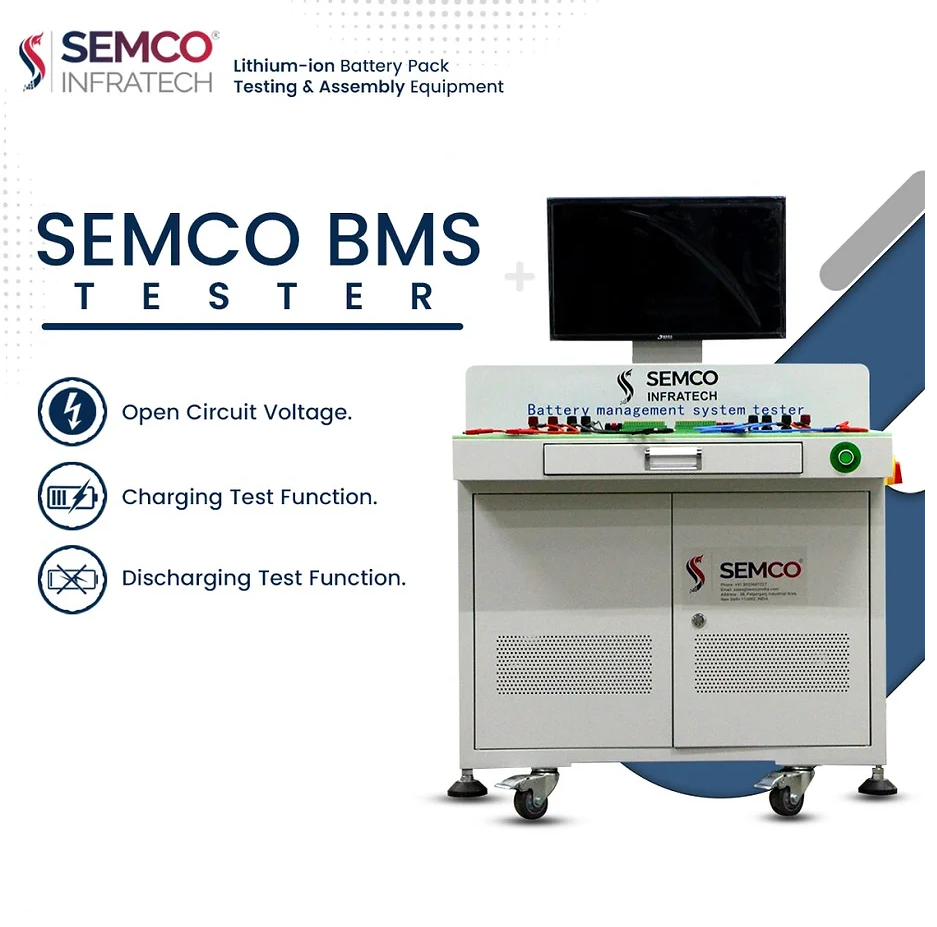Battery packs must operate safely and effectively, and battery management systems (BMS) are essential to this process. To guard against damage and increase battery life, these systems track and regulate several battery parameters, including voltage, current, and temperature. BMS testers are specialized testing instruments used to ensure BMS is operating properly. They simulate different operating conditions and analyze the system’s response to assess the performance of BMS boards.
Purpose of BMS Testers
BMS testers are essential to the battery manufacturing process for several reasons.
- Validation of BMS Functions: BMS testers confirm that the BMS board is carrying out all of its intended duties, such as temperature monitoring, cell balancing, overcurrent protection, and overcharge and undercharge protection.

2. Performance Evaluation: When measuring and controlling battery parameters, BMS testers evaluate the BMS’s responsiveness and accuracy. This guarantees that the battery pack controller receives accurate data from the BMS.
3. Failure Detection: BMS testers find possible flaws or issues with the BMS board so they don’t harm the battery pack or create a safety risk.
4. Performance Characterization of the BMS: BMS testers assess the BMS’s functionality in a range of operational scenarios, including high charge and discharge rates, temperature extremes, and varied load profiles. Battery pack design and operation can be optimized with the help of this information.
Types of BMS Testers
There are several varieties of BMS testers, and each has unique strengths and weaknesses. Among the prevalent kinds are:

- Simulation-Based Testers: Testers that simulate different battery conditions, like variations in voltage and current. They do this by using electronic circuitry. They are frequently employed for BMS boards’ fundamental functional testing.
- Real-Battery Testers: These testers assess the BMS’s functionality in real-world scenarios by connecting it to real battery packs. Although they can be more costly and complex, they offer more thorough testing.
- Hybrid Testers: Testers that combine simulation and real-battery testing capabilities; they provide a cost-performance balance.
- In-Circuit Testers: By connecting directly to the circuit board of the BMS board, these testers enable a more thorough examination of the electrical properties of the board.
Benefits of Using BMS Testers
The use of BMS testers offers several significant benefits, including:

- Enhanced Battery Pack Safety: BMS testers assist in preventing potential safety hazards and battery failures by verifying that the BMS is operating as intended.
- Enhanced Battery Pack Performance: Precise and responsive BMS control results in optimal battery performance, longer battery life, and increased energy efficiency.
- Lower Production Costs: Rework and scrap are minimized when BMS defects are found early through testing, which lowers production costs.
- Improved Product Quality: Extensive BMS testing lowers warranty claims, boosts customer satisfaction, and improves product quality.
Conclusion
To guarantee the efficient, dependable, and safe operation of battery packs, BMS testers are essential. These testers contribute to reducing battery failures, extending battery life, and improving product quality by assessing the performance of BMS boards. The need for BMS testers will only grow as the market for energy storage solutions expands.






